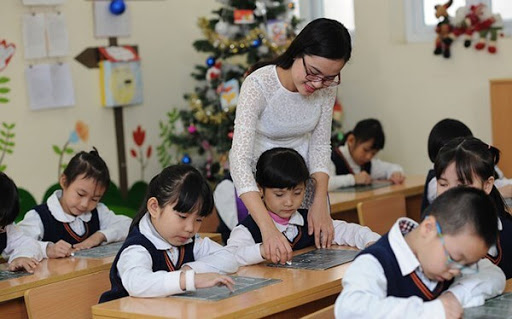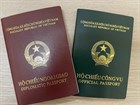In this September, several important policies in the field of education will come into effect such as regulations on teachers’ summer vacation time; standard teaching hour norms; evaluation and classification of Learning Units;... The specific content of these policies is as follows:

Important education policy effective from September 2020 (Illustration)
1. General education teachers are entitled to an 08-week summer break
According to Article 3 of Decree 84/2020/ND-CP stipulating the summer break period for educators as follows:
- The annual summer break for teachers at preschools, general education institutions, and special schools is 08 weeks, including annual leave;- The annual summer break for teachers at secondary vocational schools and lecturers at colleges is 06 weeks, including annual leave;- The annual summer break for lecturers at higher education institutions is determined according to the organization and operation regulations of the higher education institution.
In case of emergencies to prevent natural disasters, epidemics, or urgent matters, the summer break period for educators at preschools, general education institutions, special schools, secondary vocational schools, and colleges is decided by the Minister of Education and Training and the Minister of Labor, Invalids, and Social Affairs as per their authorities.
2. Lecturers must ensure a minimum of 100 hours of direct classroom teaching per year
Pursuant to Clause 4 Article 3 of Circular 20/2020/TT-BGDDT, the standard teaching hours for a lecturer in an academic year are regulated to be from 200 to 350 standard teaching hours (equivalent to 600 to 1,050 administrative hours).
Among these, direct classroom teaching hours (or online teaching) must ensure at least 50% of the stipulated standard.
The heads of higher education institutions, based on the institution's objectives, development strategies, the specifics of subjects, courses, and their particular conditions, shall determine the appropriate standard teaching hours for lecturers within an academic year.
Thus, the minimum standard teaching hours for lecturers in an academic year of direct classroom teaching must ensure at least 100 hours/year.
The standard teaching hours in special cases are determined as follows:
- Lecturers during the probationary period only perform up to 50% of the standard teaching hours and are exempted from scientific research tasks to spend time attending lectures, assisting in teaching, and participating in internships and practical experiences.- Lecturers during social insurance benefit periods, taking leave under the current Labor Code, are exempted from the standard teaching hours corresponding to the period of leave.
3. Additional 06 new administrative procedures in the field of education and training
According to Decision 2284/QD-BGDDT of the Ministry of Education and Training issued on August 10, 2020, the following 06 new administrative procedures have been added in the field of education and training:
- Central administrative procedures:- Transforming private preschools established by foreign diplomatic missions, intergovernmental international organizations to non-profit private preschool educational institutions;- Transforming private general education institutions established by foreign diplomatic missions, intergovernmental international organizations to non-profit private general education institutions.
- Provincial administrative procedures:- Transforming private nursery schools, kindergartens, preschools invested by foreign investors to non-profit private nursery schools, kindergartens, preschools;- Transforming private high schools, private general education institutions with multiple levels of education, where the highest level is high school, invested by domestic investors; private general education institutions invested by foreign investors to non-profit private general education institutions.
- District administrative procedures:- Transforming private nursery schools, kindergartens, preschools invested by domestic investors to non-profit private nursery schools, kindergartens, preschools;- Transforming private primary schools, private secondary schools, and private general education institutions with multiple levels of education where the highest level is secondary school, invested by domestic investors to non-profit private general education institutions.
4. Regulations on evaluation and classification of Learning Units
The evaluation and classification of Learning Units must be based on the results achieved in the criteria specified in Article 5 of Circular 22/2020/TT-BGDDT.
The evaluation and classification of Learning Units are based on a scoring method. The maximum total score for all criteria is 100.
The evaluation and classification are determined as follows:
- Good: Total score from 85 to 100 points;- Fair: Total score from 70 to below 85 points;- Average: Total score from 50 to below 70 points;- Not achieved: The remaining cases.
These are the important new points in the field of education that will be effective from September 2020, which the Editorial Board of THU KY LUAT sends to Valued Customers and Members. We hope this information is necessary and helpful for the work of our Valued Customers and Members.
Thuy Tram
 Article table of contents
Article table of contents









